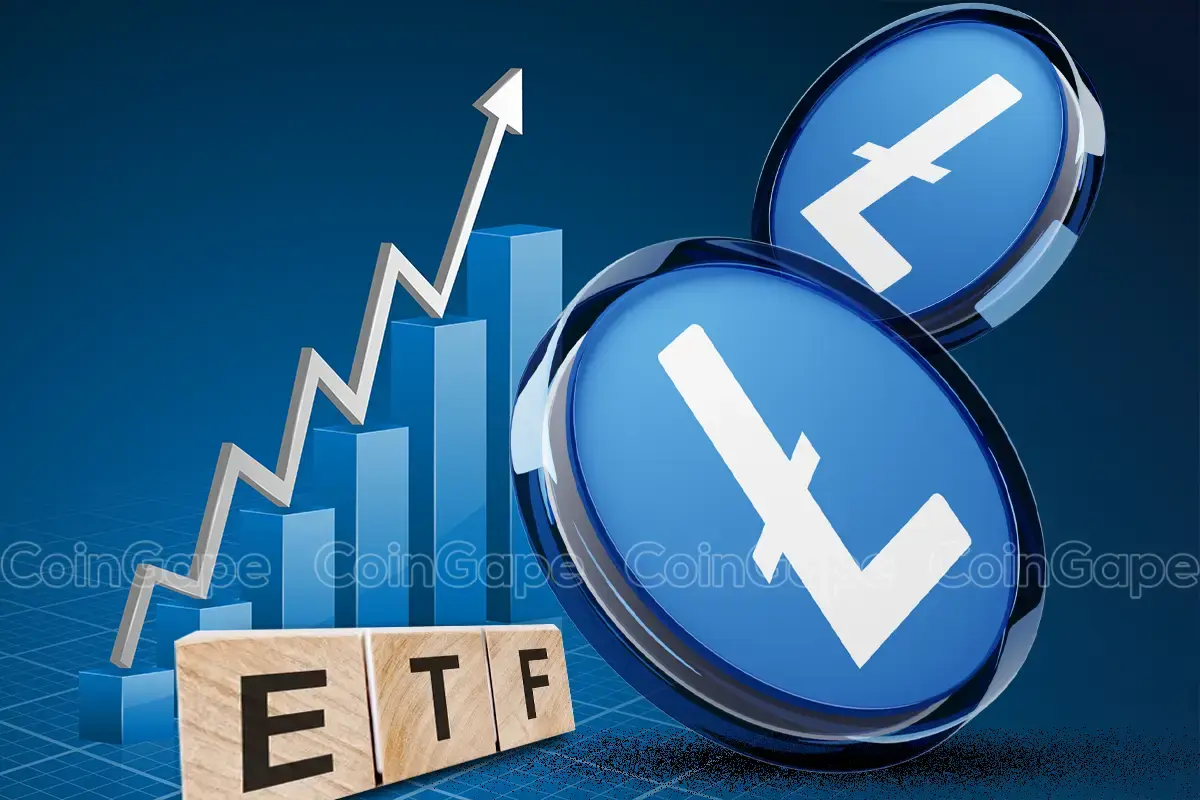In recent years, the cryptocurrency world has witnessed an explosion of innovation and growth. Among the many digital currencies making waves, Litecoin (LTC) stands out as one of the most well-established and widely used cryptocurrencies. However, an exciting development that could further increase the accessibility of Litecoin investment is the potential launch of a Litecoin ETF (Exchange-Traded Fund).
In this article, we will delve into what a Litecoin ETF is, how it works, its benefits, and how it could impact the world of crypto investing.
What is a Litecoin ETF?
An Exchange-Traded Fund (ETF) is a financial product that tracks the performance of a specific asset or group of assets, such as stocks, commodities, or cryptocurrencies. Investors can buy shares in an ETF, which are then traded on stock exchanges just like regular stocks. This allows investors to gain exposure to the underlying asset without needing to directly buy or manage it.
A Litecoin ETF would be an ETF designed to track the value of Litecoin, allowing investors to invest in Litecoin without the complexities of buying and storing the cryptocurrency themselves. Instead of holding the actual digital coins, the ETF would hold the underlying Litecoin and track its price movement.
This ETF would be particularly useful for traditional investors who may not be comfortable navigating the technical aspects of cryptocurrency trading, such as setting up wallets, dealing with exchanges, and securing private keys.
How Does a Litecoin ETF Work?
A Litecoin ETF operates similarly to ETFs for other assets. Here’s how it works:
- Creation of the ETF: A financial institution, often referred to as the “issuer,” creates the Litecoin ETF. The issuer would purchase a set amount of Litecoin and deposit it into a trust or fund. The value of this trust or fund would then fluctuate based on the price of Litecoin.
- Shares for Sale: The issuer then sells shares in the ETF to investors. These shares represent a portion of the Litecoin held in the trust, allowing investors to indirectly own Litecoin without the need for direct cryptocurrency trading.
- Trading on Exchanges: Just like stocks, Litecoin ETF shares are traded on traditional stock exchanges. This makes it easier for investors to buy and sell shares at market prices during regular trading hours.
- Tracking Litecoin’s Price: The value of each share in the ETF will be tied to the price of Litecoin, providing investors with exposure to the price movements of the digital asset.
Benefits of a Litecoin ETF
- Accessibility for Traditional Investors:
One of the primary benefits of a Litecoin ETF is that it provides a simple way for traditional investors to gain exposure to Litecoin. Many investors are familiar with stocks and ETFs but may not be comfortable with the intricacies of cryptocurrency markets. A Litecoin ETF bridges this gap. - Regulated Environment:
A Litecoin ETF would be regulated by financial authorities, such as the U.S. Securities and Exchange Commission (SEC). This offers investors a sense of security, as the fund would need to comply with established regulations, reducing the risk of fraud or market manipulation. - Ease of Use:
Owning Litecoin directly requires setting up cryptocurrency wallets, managing private keys, and understanding how exchanges work. A Litecoin ETF eliminates this complexity, offering a straightforward way to invest in Litecoin using a brokerage account or retirement accounts such as IRAs. - Diversification:
Investors often use ETFs as a way to diversify their portfolios. A Litecoin ETF would allow investors to add cryptocurrency exposure to their portfolios without having to change their entire investment strategy. This could be an attractive option for investors seeking diversification away from traditional stocks and bonds. - Tax Efficiency:
ETFs generally offer tax advantages compared to owning cryptocurrencies directly. “Investors pay taxes on a Litecoin ETF only when they sell their shares, making it potentially more tax-efficient than directly trading Litecoin, which can trigger taxes with each transaction.”
Challenges and Concerns Around a Litecoin ETF
While a Litecoin ETF has significant potential, there are still several challenges and concerns that could delay its approval or adoption:
- Regulatory Hurdles:
The regulatory landscape for cryptocurrencies remains uncertain in many countries. Regulatory bodies, such as the SEC in the U.S., have shown hesitancy in approving cryptocurrency-based ETFs, citing concerns about market manipulation and volatility. Overcoming these regulatory challenges will be crucial for the success of a Litecoin ETF. - Volatility of Litecoin:
Cryptocurrencies, including Litecoin, are known for their volatility. The price of Litecoin can experience significant swings within short periods, which may make it a risky investment for some. While this volatility can present opportunities for investors, it also poses a challenge for those looking for more stable investments. - Market Manipulation:
Another concern that regulators have raised is the possibility of market manipulation in cryptocurrency markets. The lack of oversight and the relatively smaller market cap of Litecoin compared to traditional assets could leave it vulnerable to manipulation.
Litecoin ETF and the Future of Cryptocurrency Investment
The introduction of a Litecoin ETF could mark a major turning point in the world of cryptocurrency investment. If approved and successfully launched, it would offer investors an easy, regulated way to gain exposure to Litecoin, one of the oldest and most well-known cryptocurrencies.
As more investors gain access to cryptocurrency through ETFs, it could lead to greater mainstream adoption of digital assets. Furthermore, the success of a Litecoin ETF might pave the way for other cryptocurrencies to follow suit, potentially leading to the development of ETFs for other popular coins like Bitcoin, Ethereum, and others.
FAQs
Q: What is the difference between a Litecoin ETF and owning Litecoin directly?
A: A Litecoins ETF allows investors to gain exposure to Litecoins without owning the cryptocurrency itself. Investors in an ETF hold shares in the fund, which tracks the price of Litecoin, whereas owning Litecoins directly means buying and holding the actual coins.
Q: How do I invest in a Litecoins ETF?
A: You can invest in a Litecoins ETF through a brokerage account, just like buying shares of stocks or other ETFs. “Once the ETF receives approval and launches, you can purchase shares on a stock exchange.”
Q: Is a Litecoins ETF a safe investment?
A: While a Litecoins ETF provides more safety and convenience than directly owning Litecoins, it is still subject to the volatility and risks associated with cryptocurrency markets. As with any investment, it’s important to understand the risks and do thorough research before investing.
Q: When will a Litecoins ETF be available?
A: The approval of a Litecoins ETF depends on regulatory authorities. While it is difficult to predict an exact timeline, the development of a Litecoins ETF is gaining attention, and we could see one in the near future as regulations continue to evolve.
Conclusion
A Litecoins ETF represents a groundbreaking opportunity for both seasoned and new investors in the cryptocurrency space. With its potential to bring cryptocurrency investments into the mainstream financial markets, it offers a simplified, regulated, and accessible way to invest in Litecoin. While challenges remain, particularly in terms of regulatory approval, the future of Litecoins ETFs looks promising, and it could signal a new era for digital asset investment.

